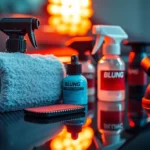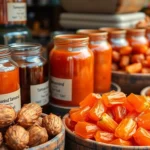Understanding the European Towels Manufacturing Landscape
Europe’s textile industry boasts a rich legacy of craftsmanship, innovation, and sustainability, particularly in the production of high-quality towels. As consumer preferences evolve towards eco-friendly, luxurious, and durable products, European towels manufacturers have adapted by embracing advanced fabric technologies and sustainable practices. This dynamic landscape involves a synergy of traditional expertise with modern manufacturing standards, positioning Europe as a global leader in the towel industry. Whether for hospitality, personal use, or retail branding, understanding the intricacies of the European manufacturing landscape is essential for businesses seeking reliable and premium towel sourcing. To explore reliable options, visit our Towels manufacturer in Europe page for an overview of top suppliers.
Historical Development and Current Trends in European Towel Production
Historically, European towel manufacturing has roots dating back centuries, with regions like Portugal, Italy, and Sweden cultivating reputations for their textiles. Over time, innovation in weaving techniques, dyeing processes, and fabric blends has elevated European towels to a product of luxury and functionality. The modern era sees a shift towards sustainable fibers—like organic cotton and linen—and eco-conscious manufacturing protocols. Additionally, increasing demand for custom design and branding effects has transformed towels from simple utility items to fashion and marketing tools. Digital printing and innovative embroidery techniques have expanded customization options, allowing brands to create unique luxury towels that appeal to discerning consumers.
The trend toward eco-friendly production is further exemplified by certifications such as GOTS (Global Organic Textile Standard), OEKO-TEX®, and ISO14001. These standards assure consumers of sustainability, minimal impact on the environment, and safe working conditions. Industry reports suggest that European manufacturers are investing heavily in environmentally friendly dyeing and weaving technologies, reducing water and energy consumption.
Key Regions and Countries Leading Towel Manufacturing in Europe
Several regions across Europe are renowned for their towel production prowess. Portugal stands out as a major hub, especially in the city of Torres Novas, where tradition and technology blend seamlessly to produce luxurious, durable beach and bath towels. Portugal’s long history of textile manufacturing, combined with modern OEKO-TEX® certified facilities, positions it as a preferred source for global buyers.
Italy, particularly northern regions like Lombardy and Emilia-Romagna, is celebrated for its luxury terry towels and bathrobes. Italian manufacturers such as Almatex S.R.L. have been producing high-end textiles since 1948, emphasizing sustainable fibers, craftsmanship, and elegant designs.
Sweden, with brands like Ekelund, has pioneered organic towel production—crafting textiles from 100% organic cotton and linen. Its emphasis on sustainability, innovative weaving, and aesthetic patterns has garnered international recognition.
In the UK, companies like Bursali Towels serve the hospitality and spa sectors with bulk production solutions focusing on quality, durability, and variety.
Choosing the Right Towels Manufacturer in Europe for Your Business
Criteria for Assessing European Towel Manufacturers
Selecting a reliable manufacturer requires a structured evaluation process. Key criteria include product quality, compliance with international standards, sustainability measures, production capacity, lead times, and price competitiveness. It’s vital to conduct thorough research, review certifications, and request samples to verify quality. Depending on your market segment—be it luxury, mid-range, or budget—different specifications will be prioritized.
How to Evaluate Quality, Sustainability, and Certifications
Quality assurance begins with fabric selection—European manufacturers often utilize premium organic cotton, Turkish cotton, or linen blends. Inspection of weave density, softness, and color fastness is essential. Certifications such as OEKO-TEX® Standard 100 ensure safety and non-toxicity, while GOTS certification guarantees organic integrity and sustainable farming practices. Request documentation and, if possible, factory audits to verify compliance.
Building Successful Partnerships with European Towels Suppliers
Establishing strong relationships with European manufacturers hinges on transparent communication, clear contractual terms, consistent quality standards, and mutual understanding of lead times and logistics. Many companies begin with small trial orders to assess reliability. Engaging with suppliers that provide customization options, responsive customer service, and flexible order quantities positions your business for scalable growth.
Innovations and Quality Standards in European Towel Manufacturing
Advances in Fabric Technology and Eco-Friendly Production
European manufacturers are at the forefront of fabric innovation, utilizing technologies like zero-twist yarns to improve absorbency and durability, and employing eco-friendly dyeing processes that conserve water and reduce chemical usage. The shift toward organic and recycled fibers aligns with global sustainability goals, making eco-conscious towels increasingly popular among consumers.
Industry Certifications Ensuring Product Safety and Quality
Certifications such as OEKO-TEX® Standard 100 attest to the safety of textiles, ensuring they are free from harmful substances. GOTS certification emphasizes organic farming and environmentally responsible processing. Additionally, ISO 9001 standards guarantee quality management systems are in place, ensuring consistent product excellence.
Design Trends and Customization Options for Brands
Customization has become a core focus—brands can choose from a plethora of design options including embroidered logos, printed patterns, and bespoke color palettes. Textural innovations like waffle-weave and jacquard patterns add tactile appeal, enhancing the luxury or branding effect. Many manufacturers offer private label solutions, enabling brands to develop a unique product line.
Supply Chain and Logistics: Delivering Towels Across Europe
Streamlining Import/Export Processes Within Europe
The European Union’s single market facilitates seamless import and export procedures, minimizing customs delays and reducing paperwork. Choosing manufacturers within the EU or close proximity can significantly improve lead times and supply chain transparency. Establishing reliable logistics partnerships ensures timely delivery and inventory management.
Best Practices for Inventory Management and Delivery Timelines
Efficient inventory management involves maintaining buffer stock, leveraging just-in-time supply chain strategies, and utilizing advanced order tracking systems. Collaboration with manufacturers for lead time forecasting and flexible shipment planning guarantees responsiveness to market demands.
Cost Considerations and Import Duties Affecting Pricing
While manufacturing costs in Europe are often higher than in Asia, factors such as quality, sustainability, and shorter logistics routes justify premium pricing. Import duties within the EU are minimized, but when importing from outside, tariffs and taxes impact total costs. Proper tariff classification and supplier negotiations help optimize overall expenditure.
Future Outlook for European Towels Manufacturers
Sustainable Practices Shaping the Future of Towel Production
Sustainability will continue to play a vital role, with innovations such as biodegradable fibers, waterless dyeing, and circular manufacturing models becoming standard. European manufacturers are investing in renewable energy and closed-loop water systems to reduce ecological footprints.
Emerging Markets and Product Innovations
Emerging markets like luxury wellness and eco-tourism are driving demand for premium towels. Developments in textile technology include antimicrobial finishes, ultra-lightweight fabrics for travel, and smart textiles incorporating embedded sensors for performance monitoring.
How Brands Can Stay Competitive in a Dynamic Industry
Continuous innovation, sustainability, and personalized branding are key to maintaining a competitive edge. Building strong supplier relationships and adopting flexible production strategies enable brands to respond swiftly to market trends and consumer preferences.








